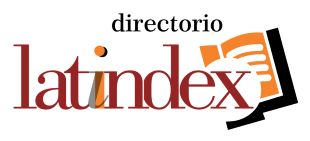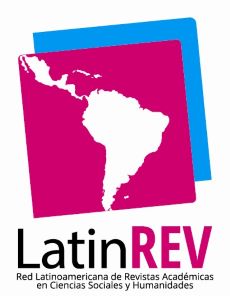Entrevista de investigación
Estrategias de entrevista para la obtención de información y evaluación de la credibilidad
Palabras clave:
entrevista de investigación , estrategias de entrevista, evaluación de la credibilidad, estrategias de entrevista basadas en evidenciaResumen
Las ciencias que estudian el comportamiento humano nos ayudan a conocer las mejores alternativas de solución a los problemas que se presentan de manera cotidiana en las entrevistas. Nos permiten responder preguntas como: ¿Cuáles son las mejores estrategias para la obtención de información? ¿Por qué los entrevistados deciden no cooperar? ¿Por qué algunos entrevistados mienten y cómo podemos lograr la obtención de información veraz? ¿Cómo detectar y diferenciar correctamente a las personas veraces y a las que están mintiendo?
En este capítulo se exponen de manera práctica y puntual las mejores estrategias de entrevista para la obtención de información y las mejores estrategias para la detección del engaño. Se presenta y explica una estructura de entrevista fundamentada en principios validados por ciencia que permite obtener una mayor cantidad de información en comparación con metodologías tradicionales.
Descargas
Citas
Abbe, A., & Brandon, S. E. (2013). Building and maintaining rapport in investigative interviews. Police Practice and Research, 15(3), 207–220. https://doi.org/10.1080/15614263.2013.827835.
Amado, B., Arce, R., and Fariña, F (2015). Undeutsch hypothesis and Criteria Based Content Analysis: A meta-analytic review. The European Journal of Psychology Applied to Legal Context, 7(1) 3-12. https://doi.org/10.1016/j.ejpal.2014.11.002.
Anta, J. Á. (2012). Detección del engaño: polígrafo vs análisis verbo-corporal. Quadernos de criminología: revista de criminología y ciencias forenses, (19), 36-46.
Aragón, Laura, Arturo Silva, Fundamentos teóricos de la evaluación psicológica, México, Pax-Mex, 1ª edición, 2004.
Baldwin, J. (1993). Police interview techniques: Establishing truth or proof? The British Journal of Criminology, 33(3), 325-352.
Blair, J. P & Levine, T. & Shaw, A. (2010). Content in Context Improves Deception Detection Accuracy. Human Communication Research. 36(3). 423-442. https://doi.org/10.1111/j.1468-2958.2010.01382.x.
Bogaard G, Colwell K, Crans S. (2019) Using the Reality Interview improves the accuracy of the Criteria-Based Content Analysis and Reality Monitoring. Applied Cognitive Psychology. 33(6). 1018-1031. https://doi.org/10.1002/acp.3537.
Braun, V. and Clarke, V. (2013) Successful Qualitative Research: A Practical Guide for Beginners. SAGE Publication, London.
Brimbal, L., Dianiska, R. E., Swanner, J. K. & Meissner, C.A (2019). Enhancing Cooperation and Disclosure by Manipulating Affiliation and Developing Rapport in Investigative Interviews, Psychology, Public Policy, and Law, 25(2), pp. 107-115.
Bull, R. (2018). PEACE-ful interviewing/interrogation: What research can tell us. En K. Shigemasu, S. Kuwano, T. Sato, & T. Matsuzawa (Eds.), Diversity in harmony - Insights from psychology: Proceedings of the 31st International Congress of Psychology (pp. 191–210). John Wiley & Sons Ltd. https://doi.org/10.1002/9781119362081.ch10.
Bull, R., & Cherryman, J. (1996). Helping to identify skills gaps in specialist investigative interviewing: enhancement of professional skills. London: Report to the Home Office Police Research Group.
Denault, V., Plusquellec, P., Jupe, L. M., St-Yves, M., Dunbar, N. E., Hartwig, M., ... van Koppen, P. J. (2019). The analysis of nonverbal communication: The dangers of pseudoscience in security and justice contexts. Anuario de Psicología Jurídica, 30(1). 1-12. https://doi.org/10.5093/apj2019a9.
DePaulo, B. M., Lindsay, J. J., Malone, B. E., Muhlenbruck, L., Charlton, K., & Cooper, H. (2003). Cues to deception. Psychological Bulletin, 129, 74-112. https://doi.org/10.1037/0033-2909.129.1.74.
Flick, U. (2018). Introducing research methodology: A beginner's guide to doing a research project. Qualitative Sociology Review, 19(2):114-116. DOI: https://doi.org/10.18778/1733-8077.19.2.06.
Hartwig, M., Granhag, P. A., & Luke, T. (2014). Strategic Use of Evidence during investigative interviews: The state of the science. In D. C. Raskin, C. R. Honts, & J. C. Kircher (Eds.), Credibility assessment: Scientific research and applications (pp. 1–36). Elsevier Academic Press. https://doi.org/10.1016/B978-0-12-394433-7.00001-4.
Kassin, S. M., Drizin, S. A., Grisso, T., Gudjonsson, G. H., Leo, R. A., & Redlich, A. D. (2010). Police-induced confessions: Risk factors and recommendations. Law and Human Behavior, 34(1), 3–38. https://doi.org/10.1007/s10979-009-9188-6.
Lennart, May & Pär Anders Granhag (2016) Using the Scharff-Technique to Elicit Information: How to Effectively Establish the ‘Illusion of Knowing It All’. European Journal of Psychology Applied to Legal Context, Vol. 8, pp. 79–85.
Leo, R. A. (2008). Police Interrogation and American Justice. Cambridge, MA: Harvard University Press.
Levine, T. (2014). Active Deception Detection. Policy Insights from the Behavioral and Brain Sciences. 1. 122-128. DOI: 10.1177/2372732214548863.
Levine, T. (2014). Truth-Default Theory (TDT): A Theory of Human Deception and Deception Detection. Journal of Language and Social Psychology. 33. 378-392. DOI: 10.1177/0261927X14535916.
Luengo, B. F. J., & ESO, B. (2011). La Tortura Y Sus Métodos A Lo Largo De La Historia. Granada, 43, 1-12.
Meissner, C. A., Surmon-Bhohr, F., Oleszkiewicz, S., & Alison, L. J. (2017). Developing an evidence-based perspective on interrogation: A review of the U.S. Government’s High-Value Detainee Interrogation Group Research Program. Psychology, Public Policy, and Law, 23(4), 438–457. https://doi.org/10.1037/law0000136.
Miller, W. R., & Rollnick, S. (2013). Motivational interviewing: Helping people change (3rd edition). Guilford Press.
Monge, C. M. H. Las tareas experimentales en la evaluación poligráfica. El Poligrafista, 3.
O’Mara, S. (2015), Why Torture Doesn’t Work: The Neuroscience of Interrogation, Harvard University Press, 2015.
Oxburgh, G., Myklebust, T., Fallon, M. Hartwig, M. (eds.) (2023). Interviewing and Interrogation: A Review of Research and Practice Since World War II. Bruselas, Torkel Opsahl Academic EPublisher.
Phillips, E., Oxburgh, G., Gavin, A., & Myklebust, T. (2012). Investigative interviews with victims of child sexual abuse: The relationship between question type and investigation relevant information. Journal of Police and Criminal Psychology, 27, 45-54. https://doi.org/10.1007/s11896-011-9093-z.
Prado. R., Grajales, C., & Nelson, R. (2015). Laboratory study of directed lie polygraphs with Spanish speaking examinees. Polygraph, 44(1), 79-90.
Prado. R., Grajales, C., & Nelson, R. (2015). Laboratory study of a diagnostic polygraph technique in a single sequence: A replication study. Polygraph, 44(1): 1-12.
Principios sobre Entrevistas Efectivas para Investigación y Recopilación de Información, mayo de 2021, obtenido de: www.interviewingprinciples.com.
Russano, M., Meissner, C., Atkinson, D., Brandon, S., Wells, S., Kleinman, S., Ray, D. & Jones, M. (2024). Evaluating the Effectiveness of a Five-Day Training on Science-Based Methods of Interrogation with U.S. Federal, State, and Local Law Enforcement Investigators. Psychology Public Policy and Law, 30(2), 105-120. https://doi.org/10.1037/law0000422.
Shaked‐Schroer, N., Costanzo, M., & Berger, D. E. (2015). Overlooking coerciveness: The impact of interrogation techniques and guilt corroboration on jurors’ judgments of coerciveness. Legal and Criminological Psychology, 20(1), 68-80. https://doi.org/10.1111/lcrp.12011.
Shepherd, E. & Griffiths, A. (2021) Investigative Interviewing: The Conversation Management Approach, 3rd ed. (Oxford, 2021; online edn, Oxford Academic, 21 Oct. 2021), https://doi.org/10.1093/oso/9780192843692.001.0001.
St-Yves, M., & Deslauriers-Varin, N. (2009). The psychology of suspects' decision-making during interrogation. En R. Bull, T. Valentine, & T. Williamson (Eds.), Handbook of psychology of investigative interviewing: Current developments and future directions (pp. 1-15). Wiley Blackwell. https://doi.org/10.1002/9780470747599.ch1.
Telep, C. W., & Lum, C. (2014). The Receptivity of Officers to Empirical Research and Evidence-Based Policing: An Examination of Survey Data From Three Agencies. Police Quarterly, 17(4), 359-385. https://doi.org/10.1177/1098611114548099.
Vrij, A., & Granhag, P. A. (2012). Eliciting cues to deception and truth: What matters are the questions asked. Journal of Applied Research in Memory and Cognition, 1(2), 110–117. https://doi.org/10.1016/j.jarmac.2012.02.004.
Vrij, A., Granhag, P., Ashkenazi, T., Ganis, G., Leal, S., Fisher, R. (2022). Verbal Lie Detection: Its Past, Present and Future. Brain Sciences. 12. 1644. 10.3390/brainsci12121644.
Vrij, A., Mann, S., Leal, S., & Fisher, R. P. (2021). Combining verbal veracity assessment techniques to distinguish truth tellers from lie tellers. The European Journal of Psychology Applied to Legal Context, 13(1), 9-19. https://doi.org/10.5093/ejpalc2021a2.
Walczyk, J.J., Harris, L.L., Duck, T.K., & Mulay, D. (2014). A social-cognitive framework for understanding serious lies: Activation-decision-construction-action theory. New Ideas in Psychology, 34, 22-36.
Walsh, D., & Bull, R. (2011). Benefit fraud investigative interviewing: A self-report study of investigation professionals’ beliefs concerning practice. Journal of Investigative Psychology and Offender Profiling, 8, 131-148.
Walsh, D., & Bull, R. (2012). How do interviewers attempt to overcome suspects’ denials? Psychiatry, Psychology and Law, 19, 151-168.
Walsh, D., & Bull, R. (2015). Interviewing suspects: Examining the association between skills, questioning, evidence disclosure, and interview outcomes. Psychology, Crime & Law, 21(7), 661–680. https://doi.org/10.1080/1068316X.2015.1028544.
Descargas
Publicado
Cómo citar
Número
Sección
Licencia
Derechos de autor 2025 Rodolfo Prado Pelayo

Esta obra está bajo una licencia internacional Creative Commons Atribución-NoComercial 4.0.
Los autores/as que publiquen en esta revista aceptan las siguientes condiciones:
a. Los autores/as conservarán sus derechos de autor y garantizarán a la revista el derecho de primera publicación de su obra, el cual estará simultáneamente sujeto a la Licencia Creative Commons Atribución-NoComercial 4.0 Internacional. que permite a terceros compartir la obra siempre que se indique su autor y su primera publicación esta revista.
b. Los autores/as pueden realizar otros acuerdos contractuales independientes y adicionales para la distribución no exclusiva de la versión del artículo publicado en esta revista (p. ej., incluirlo en un repositorio institucional o publicarlo en un libro) siempre que indiquen claramente que el trabajo se publicó por primera vez en esta revista.
c. Se permite y recomienda a los autores/as a publicar su trabajo en Internet (por ejemplo en páginas institucionales o personales) posterior al proceso de revisión y publicación, ya que puede conducir a intercambios productivos y a una mayor y más rápida difusión del trabajo publicado (Véase El efecto del acceso abierto).










 Constructos criminológicos Vol. 6 Núm. 10, Enero-Junio 2026, es una publicación semestral editada por la Universidad Autónoma de Nuevo León, a través de la Facultad de Derecho y Criminología. Dirección de la publicación: Av. Universidad s/n Cd. Universitaria C.P. 66451, San Nicolás de los Garza, Nuevo León, México.constructoscriminologicos.uanl.mx, constructoscriminologicos@uanl.mx. Editor responsable: Dr. José Zaragoza Huerta, Facultad de Derecho y Criminología. Reserva de Derechos al Uso Exclusivo núm. 04-2024-110717414100-102 ISSN 2954-5234, ambos otorgados por el Instituto Nacional del Derecho de Autor. Responsable de la última actualización: Dr. José Zaragoza Huerta, Facultad de Derecho y Criminología Av. Universidad s/n Cd. Universitaria C.P. 66451, San Nicolás de los Garza, Nuevo León, México. Fecha de la última modificación 15 de enero 2026.
Constructos criminológicos Vol. 6 Núm. 10, Enero-Junio 2026, es una publicación semestral editada por la Universidad Autónoma de Nuevo León, a través de la Facultad de Derecho y Criminología. Dirección de la publicación: Av. Universidad s/n Cd. Universitaria C.P. 66451, San Nicolás de los Garza, Nuevo León, México.constructoscriminologicos.uanl.mx, constructoscriminologicos@uanl.mx. Editor responsable: Dr. José Zaragoza Huerta, Facultad de Derecho y Criminología. Reserva de Derechos al Uso Exclusivo núm. 04-2024-110717414100-102 ISSN 2954-5234, ambos otorgados por el Instituto Nacional del Derecho de Autor. Responsable de la última actualización: Dr. José Zaragoza Huerta, Facultad de Derecho y Criminología Av. Universidad s/n Cd. Universitaria C.P. 66451, San Nicolás de los Garza, Nuevo León, México. Fecha de la última modificación 15 de enero 2026.